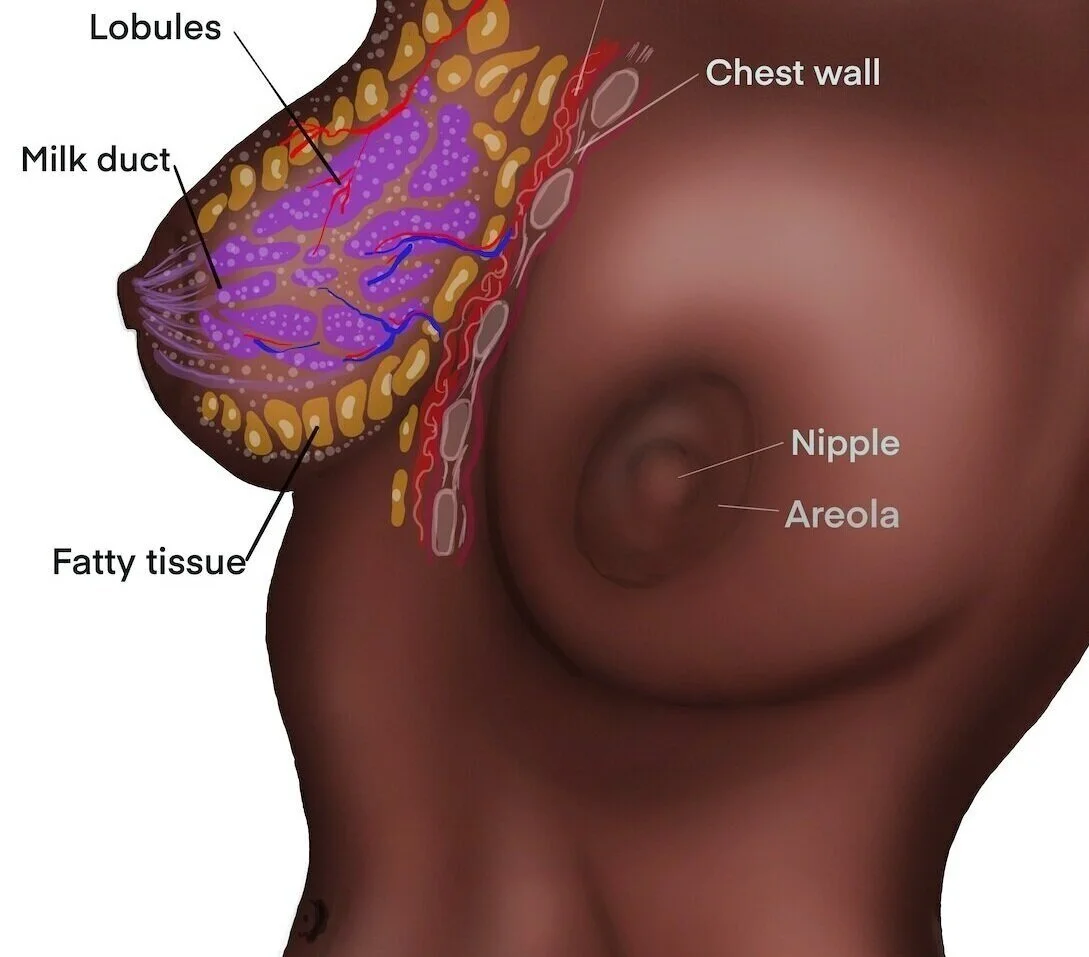MASTITIS
Mastitis is inflammation of the breast/chest tissue that can sometimes involve infection.
It is difficult to prevent narrowed or clogged milk ducts or mastitis, but they can be treated with physiotherapy if you are quick to recognise the early warning signs. It is important to treat mastitis quickly to reduce the risk of an abscess forming.
Mastitis may begin as a narrowing or clogging of the milk duct causing milk to overflow into the surrounding tissue creating an inflammatory response. However, it can also begin with no warning and symptoms can come on very quickly.
Artwork by Kendra Profumo @womeninspireart
Mastitis/Blocked Duct Answers
-
If you can feel a firm, sore lump in your breast/chest, and you feel well, it is likely you have a narrowed or blocked milk duct.
You may have mastitis if you have the following symptoms with or without a lump:
Body ache, chills and fever; which may present before any other symptoms
Feeling unwell
Breast/Chest tenderness
Breast/Chest warmth to the touch
Redness of the breast/chest
Breast/Chest swelling
Nipple discharge
-
Mastitis or narrowed milk ducts can affect anyone in the early postnatal phase or those who are breastfeeding in the postnatal phase.
Changes in breastfeeding/chest-feeding patterns, missed feeds or clothing can contribute to your risk of developing mastitis.
If narrowed or clogged milk ducts are not treated, they may become mastitis. However, mastitis can occur without this.
-
It is important to treat Mastitis as quickly as possible. It will reduce the risk of an abscess forming, requiring further medical intervention.
Using a combination of Therapeutic Ultrasound and specialised massage, early management with a trained physiotherapist can be very effective.
Narrowed or blocked ducts can also be treated this way, however you may find you are able to shift the blockage yourself with gentle massage, rest and feeding.
-
We will teach you management options and how to self-massage in the event you feel it is reoccurring - and extensively educate you on the warning signs and symptoms that may require antibiotics.
Cool/ice pack or gentle massage can be helpful. Avoid restrictive or tight clothing and continue to feed as often as your baby needs. If you feel engorged, you may find it helpful to express a small amount of milk.
Ibuprofen and lecithin supplements have been found to be helpful additions to mastitis managment.
If your symptoms have progressed past 24 hours, please present to your GP.
If you require urgent care, please present to your nearest emergency department.



